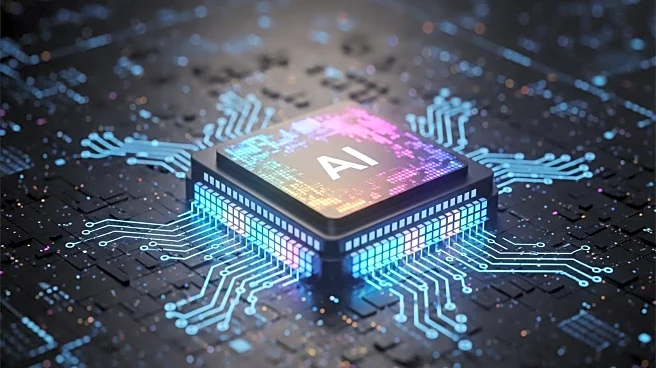What is the story about?
What's Happening?
AMD and OpenAI have announced a significant multi-year partnership involving the deployment of 6 gigawatts of AMD's AI GPUs across multiple future chip generations. This deal is expected to generate tens of billions of dollars in annual revenue for AMD. As part of the agreement, OpenAI has been granted a warrant to purchase up to 160 million AMD shares at a nominal price, contingent on meeting certain performance milestones and stock price targets. This partnership positions AMD to challenge Nvidia's dominance in the AI hardware sector, as investors reacted positively, causing AMD's stock to surge by over 30%.
Why It's Important?
The partnership between AMD and OpenAI is a transformative development in the AI industry, potentially reshaping market dynamics and challenging Nvidia's stronghold on AI computing. For AMD, this deal represents a strategic opportunity to expand its presence in the AI sector, potentially attracting other AI customers. OpenAI benefits by diversifying its supplier base, reducing reliance on Nvidia, and securing the necessary compute power to advance its AI models. The deal also highlights the growing trend of entangled alliances in the tech industry, where companies are increasingly interdependent, raising both opportunities and risks.
What's Next?
The success of this partnership will depend on AMD's ability to deliver cutting-edge chips on time and meet performance expectations. OpenAI's warrant could dilute AMD's shareholders if stock targets are met, posing a high price for growth. Supply chain challenges, such as memory shortages and export restrictions, could impact the deal's execution. The energy footprint of the AI supercluster may also draw environmental scrutiny. The broader AI industry will be watching closely, as the outcome of this partnership could influence future collaborations and investments.
Beyond the Headlines
The OpenAI-AMD alliance is part of a larger trend of massive partnerships and cross-investments among tech giants, chipmakers, and investors, creating a complex web of financial interdependence. This entanglement carries systemic risks, as the fortunes of major players are now deeply tied to each other's success. Critics warn of potential market bubbles, while optimists see these alliances as necessary for advancing AI technology. The deal raises questions about potential monopolies and the concentration of power in the AI sector, which may eventually attract regulatory scrutiny.
















